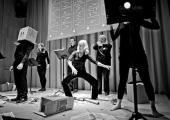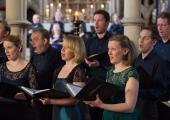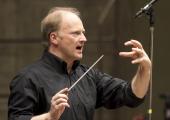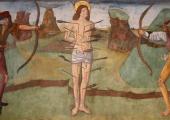GUGLIELMO TELL, TEATRO REGIO TORINO, NOSEDA, USHER HALL, EDINBURGH Wildly thrilling Festival performance enough to convert anyone to Rossini
Wildly thrilling Festival performance enough to convert anyone to Rossini
First, confessions. I’m the dance critic here at theartsdesk. Yes, this is a review of a concert performance of an opera, and no, I haven’t picked up a detailed knowledge of Rossini’s oeuvre as a byproduct of my education in pirouettes and Pina Bausch. I attended last night’s concert as a common or garden punter, and a chance one at that, taking a ticket to save wasting it after its original owner had to give it up because of a work commitment.






